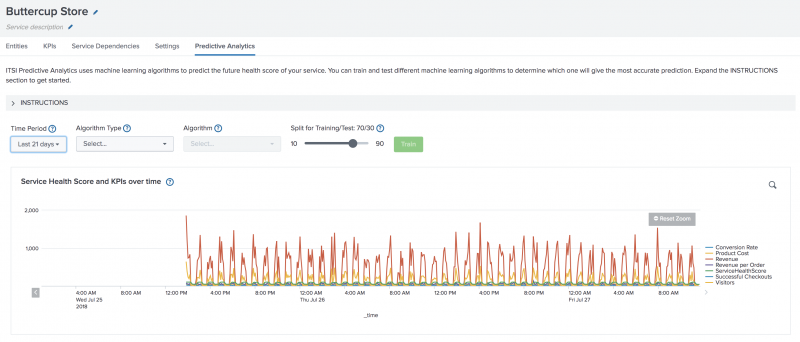Overview of Predictive Analytics in ITSI
Predictive Analytics uses machine learning algorithms to predict the health score value of a selected service in IT Service Intelligence (ITSI). The models use historical service health score and KPI data to approximate what a service's health might look like in 30 minutes.
ITSI provides visualization tools that guide you through the process of creating machine learning models without having to learn complex machine learning algorithms and technology.
Implement Predictive Analytics to identify and fix service outages before they happen. By receiving a warning that your service is likely to degrade in the next 30 minutes, you can take steps to resolve the problem before it affects other areas of your environment.
Use Predictive Analytics if:
- You've had unplanned outages in the past.
- You want to prevent future outages.
- You want to understand and identify patterns in your service.
- You want to understand how future outages can impact your business.
See also
| Update a service template in ITSI | Set up Predictive Analytics in ITSI |
This documentation applies to the following versions of Splunk® IT Service Intelligence: 4.11.0, 4.11.1, 4.11.2, 4.11.3, 4.11.4, 4.11.5, 4.11.6, 4.12.0 Cloud only, 4.12.1 Cloud only, 4.12.2 Cloud only, 4.13.0, 4.13.1, 4.13.2, 4.13.3, 4.14.0 Cloud only, 4.14.1 Cloud only, 4.14.2 Cloud only, 4.15.0, 4.15.1, 4.15.2, 4.15.3, 4.16.0 Cloud only, 4.17.0, 4.17.1, 4.18.0, 4.18.1, 4.19.0, 4.19.1, 4.19.2, 4.19.3, 4.19.4, 4.20.0

 Download manual
Download manual
Feedback submitted, thanks!